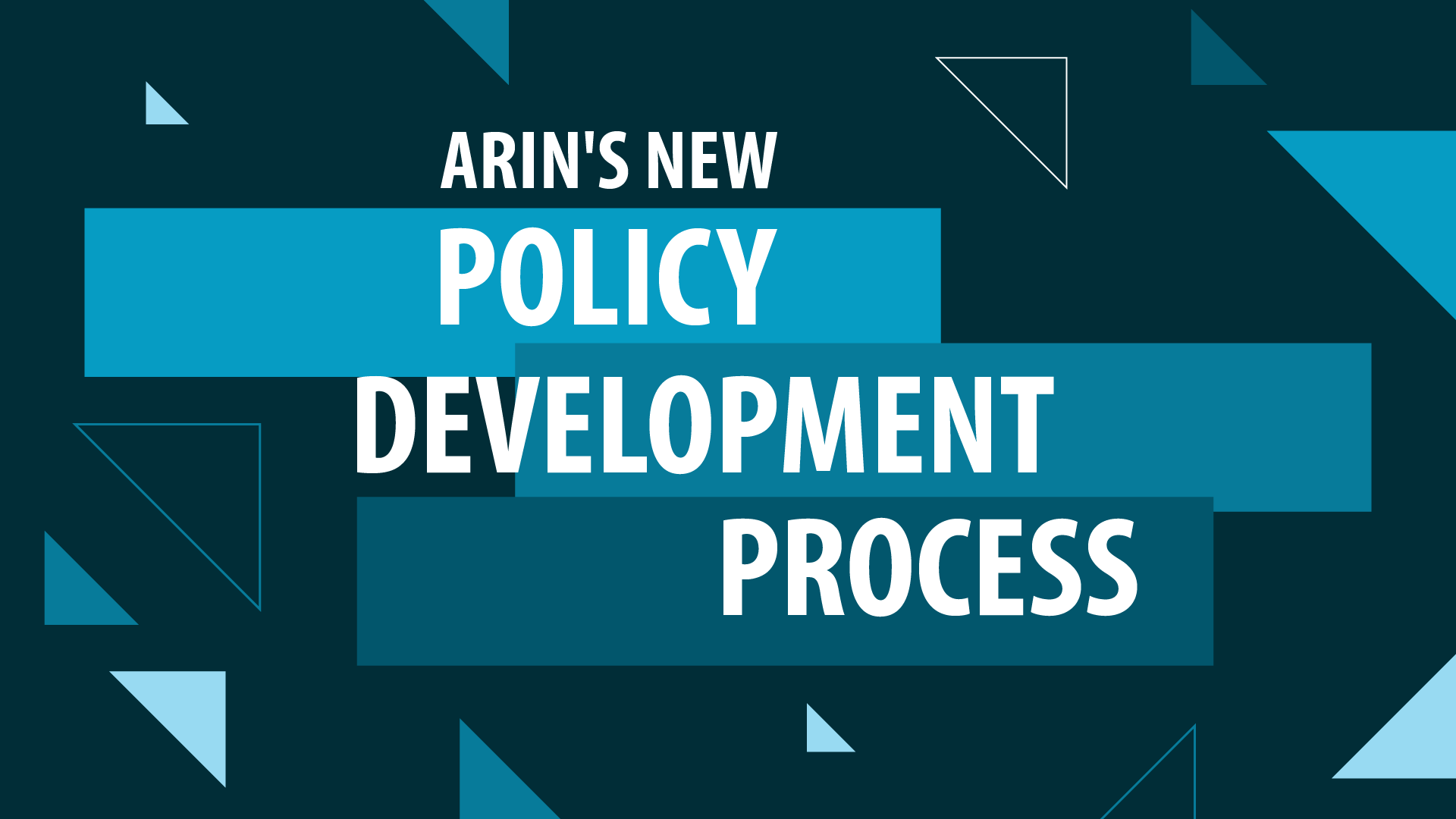
Meet Our New Policy Development Process
If you’ve been involved in the ARIN community in the last 14 years, you have most likely become familiar with the “PDP” that we so fondly (and so often) refer to. ARIN’s Policy Development Process (PDP) was first adopted on 7 January 2009, when it replaced the Internet Resource Policy Evaluation Process (IRPEP). After a new version was published on 14 January 2013, we continued to work under that PDP for more than a decade.
The ARIN PDP is the process by which policies for the management of Internet number resources in the ARIN region are developed by the community in an open, transparent, and inclusive manner. Community participation is not only encouraged but essential to this process, and anyone can submit proposals for changes to number resource policy and take part in discussions of draft and recommended draft policies.
How was it created?
As of 1 May 2023, we now have a new PDP to guide our community. This version supersedes the previous version. The process for making this update began in 2020 with the establishment of an Advisory Council (AC) PDP Working Group (WG) comprising co-chairs Amy Potter and Andrew Dul along with Alicia Trotman and Kerrie Richards. Their goal was to review the PDP, consider the feedback received over the years, and produce a recommendation for changes to:
- Improve the readability of the document,
- Resolve issues noted over the past decade, and
- Resolve ambiguity in the structure.
In consultation with the rest of the AC, the PDP WG determined that these goals would best be accomplished by a rewrite of the PDP, including extensive restructuring for improved readability. ARIN held a consultation regarding the proposed updates in the fall of 2022, providing a log of significant changes in this revision for community review, and no feedback was received.
What’s different in the new version?
The new PDP is an important step forward in ensuring that ARIN’s procedures evolve to meet the needs of its community, and the PDP WG structured it to be a more user-friendly step-by-step format. Each step starts with a criterion required for moving forward and then outlines the actions available to the different participant types: members of the community, the AC, the Board, or ARIN staff. It details what’s required by them and what they can and cannot do.
Along with rewrites and the addition of some definitions for clarity, several other updates are incorporated. A new Roles and Responsibilities section briefly defines how various groups interact in the PDP lifecycle, and a new introduction lays out how the PDP is drafted and how a new reader should approach each section.
Let’s take a look at some of the other key changes.
Streamlining Proposals and Petitions
It is made clear that the author is in control of the text during the Policy Proposal phase and that the AC may deem a proposal editorial and use the editorial process.
The procedure for petitions has been rewritten as a single process with initiation and counting moved from the Public Policy Mailing List (PPML) to ARIN’s website and with the timing of its steps adjusted. The required level of support has been collapsed to a single threshold of 15 members of the Internet community.
Providing More Guidance
A new section on Policy Proposal Anatomy defines all the elements of a policy proposal so one can be submitted easily by a member of the Internet community. The new PDP also clarifies the Internet community feedback solicited by the AC during Last Call as well as the process for when a Recommended Draft Policy is remanded or rejected by the Board.
Clarifying Roles
The new PDP clarifies the role of the AC, Board, staff, and community in the policy development, implementation, and special action processes. It also limits petition participation to Points of Contact for ARIN resource holders (rather than any Internet community member).
How do I participate?
Policy proposals may be submitted by any member of the Internet community (i.e. anyone and everyone with an interest in Internet number resources) except for members of the ARIN Board of Trustees or ARIN staff.
You don’t need to be an ARIN Member to help drive our PDP and influence the future of the Internet!
You can submit your own proposal at any time by emailing it to policy@arin.net. Don’t worry about getting the wording exactly right; the AC will work with you directly to help transform your idea into a clear change, removal, or addition to policy text, and get it the community attention it needs to move through the PDP.
In addition to submitting policy proposals, there are plenty of other opportunities to participate. Subscribe to the PPML to learn when Draft Policies and Recommended Draft Policies are posted for community discussion, and don’t hesitate to join the conversation and share your support or concerns. You also have the chance to provide feedback when draft policies are presented at our biannual Public Policy and Members Meetings.
Additional resources can be found on the following webpages:
Remember, ARIN is powered by participation! We hope you’ll engage in the (new) Policy Development Process, add your voice to the conversation, and help us continue fulfilling our mission to support the operation and growth of the Internet through the management and distribution of Internet number resources.
Watch our free, on-demand “Get to Know the ARIN Policy Development Process” webinar to learn more about the PDP whenever and wherever is convenient for you!
Recent blogs categorized under: Public Policy
GET THE LATEST!
Sign up to receive the latest news about ARIN and the most pressing issues facing the Internet community.
SIGN ME UP →Blog Categories
RPKI • Updates • Outreach • Internet Governance • Grant Program • Tips • IRR • IPv6 • Public Policy • Caribbean • Elections • ARIN Bits • Fellowship Program • Training • Security • Guest Post • Data Accuracy • Business Case for IPv6 • IPv4 • Customer Feedback



